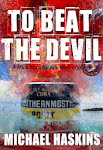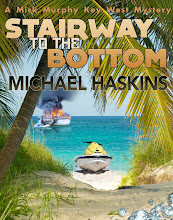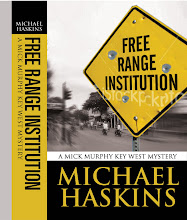Censorship, it’s an interesting concept. If you believe in it, you agree to give another person, or group of people, the right to control what you know and can learn.
If you don’t believe in it, you should be frightened to death every time some yokel petitions a library board to ban a book. Take it off the shelves! And do what? Burn it?
Parents, you gotta love ‘em. We all have ‘em and they are always looking out for us. Like the West Virginia parents, whose 12th graders were in a college prep class, and found the college-bound students were reading Prince of Tides and Beach Music – both by Pat Conroy.
I read Prince of Tides, years ago, but never read Beach Music.
The parents were concerned about the language, sex, and violence in the books. I wonder when they last went to college. The world has shrunk and kids growing up today have aged a lot faster than we did in school. The women I went to college with didn’t look as mature as the high school girls I see in the mornings waiting for the school bus do! In some cases, I have no doubt that high school kids know more about sex than we did at their age and probably more than their parents do.
Censorship is for the home. Parents have the right to turn the radio, TV, and computer off. I wonder if they take advantage of that opportunity. Of course, they use them for babysitting, so they probably don’t. Today, parents expect schools to bring up their children and then when an instructor chooses a book, or subject matter they don’t like, or that frightens them, they raise holy hell!
If the instructor is good enough for the other duties, why not trust in his/her judgment, especially if parenting isn’t really their fulltime job, because of work. The instructor has a better idea of what books are required reading for college prep classes than working parents who probably can’t find time to read. I, sadly, know people who haven’t read a novel since leaving college.
Parents can’t have it both ways. They want to censor the school’s choice of curriculum, but probably don’t know what games their kids are playing on the computer or movies they attend and/or watch at home. Growing up, we had the Pilot, a Catholic newspaper that contained a list of movies and rated them. We assured our parents we were going to see an “accepted” movie, but found our way to one that was listed in the “condemned” column. In most cases, I often found myself confused because I couldn’t understand why the movie was condemned!
Or, of course, it can be the opposite and some parents suppress their kids curiosity with too much strictness and ban everything and probably Bambi, too.
I have said before, what makes America a great country is our right to walk into a public library and choose a book to read. We can read Karl Marx’s Das Kapital or Adolph Hitler’s Meim Kampf, and make up our own minds. Most of us go for something in between the two, because we’re brought up to be reasonable. But we have the choice to choose.
There are reason dictatorships burn books and it isn’t to keep the population safe from smut and lies; it’s to keep ideas away from its masses. Ideas mean thought and free thought has always been feared by tyrants. Have you re-read Fahrenheit 451 recently? I took a class from its writer, Ray Bradbury, and he said he wrote it on a rented typewriter in the basement of the library at UCLA! Go back and re-read it. It's worth the time.
If an idea is strong enough than opposing ideas will not sway its believers, but if it based on hyperbole then the idea of questioning it scares the leaders and the simplest way to keep the status quo is to put a halt to knowledge. When the quest for knowledge and questioning ideas and principles are outlawed, which is what censorship does, then civilization, as we know it, declines.
What was that old ‘60s adage: Always question authority. If authority fears questions, it should send a strong message to us that something is wrong!
Something else that should concern and scare us is that reading in general is declining. We, as writers and readers, should ask, why. What is happening? Newspapers have cut back on book review sections.
My novel, Chasin’ the Wind, comes out in March and I sent a press package to the Quincy Patriot Ledger, in Quincy, Massachusetts. A few months back the paper ran a small blurb that a locally born writer was publishing his first novel. My website got hundreds of hits and I received emails for people I went to school with. I sent an ARC to the editor recently and when I called to see if it arrived, she said the paper no longer did book reviews. I told her it involved someone who grew up in Quincy, went through the public schools, and still had family and friends in the area. After a long moment of silence, she replied “Yeah, but so.” When I was growing up in Quincy a local boy becoming a novelist would have been newsworthy. Today, it’s worth only a blurb. Now that’s scary.
As writers and readers, what can we do about declining readership? It is as important as fighting censorship, because it is a quiet victory for those who would ban books.
A good New Year’s Resolution might be to give a book to a friend and encourage them to read, or maybe read more ourselves. If you have any ideas on how to solve this problem, please pass them along. And, you know what else, call your local librarian, and say “thank you,” because libraries are also being threatened with closures throughout the country. But you’re probably aware of that.
Tuesday, December 18, 2007
Friday, December 7, 2007
Deadlines of today and yesterday
My self-designated deadline for finishing the sequel to “Chasin’ the Wind” was mid September. I didn’t meet it. My grandson came in from Germany for two weeks and I got to play tourist in Key West. Two weeks and we didn’t get to see and do everything Key West offers.
My background as a journalist helps with deadlines. Sometimes I had to deal with a two-hour deadline and there weren’t any excuses. I think I recall the editor in Key West at the time, Bernie Hunt, saying hospitalization would be an accepted excuse for missing deadline. Of course, that was before everyone had a laptop. I have a feeling today, Bernie would expect the story to sent in by email from the hospital.
Journalism has played a big part in my life. In Los Angeles, I was a member of the Press Photographers Association of Greater Los Angeles and even did one term on its board of directors. That was during my freelance photojournalist phase of life. The LA Press Club, on Vermont Ave. at the time, had a great old bar and life was good. LA was a jumping news town (probably still is) with mixture of brutality and Hollywood glamour. A photographer could make a living listening and responding to the police scanner.
Years before that, in my high school days, I was the weekend office boy for the old Record-American/Sunday Advertiser in Boston. There were teletype machines clacking away constantly with news copy and blurry copies of photos available. Typesetters set type backward! I don’t suppose you can see that anywhere these days, but it was amazing. A lost art.
Everyone in composing wore a funny hat made from old copies of the paper and there was always someone with a half pint in the back pocket of their greasy overalls, incase of snakebite or other serious problems. And, there was the local bookie who kept better hours than the paper’s employees.
The paper is gone now, merged with the Herald-Traveler, and moved to the old South End. Back when I was working there, it was downtown at Winthrop Square. Down by where Steve McQueen arranged to have the bank robbed in the Thomas Crown Affair.
Old memories, good memories, certainly got me off the deadline topic. Back on course. After high school I received an editorial apprenticeship at the paper. I worked for the daily Record-American for a few months, then the Sunday Advertiser, then the weekly magazine that came out with the Advertiser and then in the photo department. I learned by doing and working with some great reporters and photographers.
And copy editors! The newsroom was a large open area with rows of desks. The teletype machines lined one wall, windows on the opposite (usually open all year because everyone smoked – cigars and pipes, as well as cigarettes – and there was no A/C), with the two managing editors’ cubicles in front.
At deadline, copy editors would walk to the back of the room, then walk down the aisle, and pull copy from reporters’ typewriters, as it was being written, in some cases. We wrote with one original and two carbon copies.
I remember the first time the paper hired a woman photographer, Judith Buck, and she used a 35mm camera. The old Rolies used, if I can recall, 126 b&w film and took something like six or 12 shots. Judy shot 36 frames per roll, had interchangeable lenses, and got the opportunity to choose the good photos from many bad, out of focus, poorly framed shots. She could stand on tables, chairs, stairways to shoot for an unusual angle. Soon, though, her photos were making the front page of the tabloid and the paper's centerfold.
By the time my apprenticeship moved me into the photo department, everyone had 35mm cameras.
To be continued . . .
My background as a journalist helps with deadlines. Sometimes I had to deal with a two-hour deadline and there weren’t any excuses. I think I recall the editor in Key West at the time, Bernie Hunt, saying hospitalization would be an accepted excuse for missing deadline. Of course, that was before everyone had a laptop. I have a feeling today, Bernie would expect the story to sent in by email from the hospital.
Journalism has played a big part in my life. In Los Angeles, I was a member of the Press Photographers Association of Greater Los Angeles and even did one term on its board of directors. That was during my freelance photojournalist phase of life. The LA Press Club, on Vermont Ave. at the time, had a great old bar and life was good. LA was a jumping news town (probably still is) with mixture of brutality and Hollywood glamour. A photographer could make a living listening and responding to the police scanner.
Years before that, in my high school days, I was the weekend office boy for the old Record-American/Sunday Advertiser in Boston. There were teletype machines clacking away constantly with news copy and blurry copies of photos available. Typesetters set type backward! I don’t suppose you can see that anywhere these days, but it was amazing. A lost art.
Everyone in composing wore a funny hat made from old copies of the paper and there was always someone with a half pint in the back pocket of their greasy overalls, incase of snakebite or other serious problems. And, there was the local bookie who kept better hours than the paper’s employees.
The paper is gone now, merged with the Herald-Traveler, and moved to the old South End. Back when I was working there, it was downtown at Winthrop Square. Down by where Steve McQueen arranged to have the bank robbed in the Thomas Crown Affair.
Old memories, good memories, certainly got me off the deadline topic. Back on course. After high school I received an editorial apprenticeship at the paper. I worked for the daily Record-American for a few months, then the Sunday Advertiser, then the weekly magazine that came out with the Advertiser and then in the photo department. I learned by doing and working with some great reporters and photographers.
And copy editors! The newsroom was a large open area with rows of desks. The teletype machines lined one wall, windows on the opposite (usually open all year because everyone smoked – cigars and pipes, as well as cigarettes – and there was no A/C), with the two managing editors’ cubicles in front.
At deadline, copy editors would walk to the back of the room, then walk down the aisle, and pull copy from reporters’ typewriters, as it was being written, in some cases. We wrote with one original and two carbon copies.
I remember the first time the paper hired a woman photographer, Judith Buck, and she used a 35mm camera. The old Rolies used, if I can recall, 126 b&w film and took something like six or 12 shots. Judy shot 36 frames per roll, had interchangeable lenses, and got the opportunity to choose the good photos from many bad, out of focus, poorly framed shots. She could stand on tables, chairs, stairways to shoot for an unusual angle. Soon, though, her photos were making the front page of the tabloid and the paper's centerfold.
By the time my apprenticeship moved me into the photo department, everyone had 35mm cameras.
To be continued . . .
Subscribe to:
Posts (Atom)















